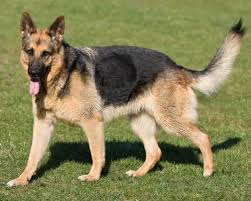How to Tell if Your Dog is Having a Nightmare
We all have nightmares from time to time. They can be caused by stress, anxiety, or even just overeating before bed. And it turns out that our furry friends can have them too. So how can you tell if your dog is having a nightmare? Read on to find out.
What Causes Dog Nightmares?
The cause of nightmares in dogs is not fully understood. However, they seem more common in puppies and young dogs, which suggests that they may be linked to fear and anxiety. Dogs who have experienced traumatic events like abandonment or abuse may also be more prone to nightmares. Senior dogs may suffer from nightmares as a result of age-related cognitive decline.
How to Tell if Your Dog is Having a Nightmare
There are several signs that your dog may be experiencing a nightmare. These include whimpering or crying, restless sleep, twitching or kicking legs, and rapid eye movement. If your dog typically sleeps through the night without making any noise, then suddenly starts whimpering or crying in his sleep, it’s a good indication that he’s having a nightmare.
If you notice your dog’s legs twitching or kicking while he’s asleep, it’s another sign that he may be experiencing a nightmare. This is because dogs often dream about running or chasing something. Rapid eye movement (REM) sleep is also associated with dreaming. So if you notice your dog’s eyes rushing back and forth under his eyelids while he’s asleep, it’s yet another indication that he’s having a nightmare.
What to Do if Your Dog is Having a Nightmare
If you think your dog is having a nightmare, there are several things you can do to help him feel better. First, try gently waking him up by calling his name or lightly touching him on the shoulder. Once awake, reassure him with gentle petting and positive reinforcement (e.g., treats). If your dog seems scared or disoriented after waking up from a nightmare, try placing him in his crate or a small room where he feels safe and secure. This will help him calm down and feel more comfortable. You should also avoid making loud noises or sudden movements around your dog while sleeping, as this could startle him and worsen his nightmares.
No one likes having nightmares, including our furry friends. If you think your dog is having a nightmare, there are several things you can do to help him feel better. First, try gently waking him up by calling his name or lightly touching him on the shoulder. Once awake, reassure him with gentle petting and positive reinforcement (e.g., treats).
If your dog seems scared or disoriented after waking up from a nightmare, try placing him in his crate or a small room where he feels safe and secure. This will help him calm down and feel more comfortable. You should also avoid making loud noises or sudden movements around your dog while he’s sleeping not to startle him and make his nightmares worse.
How do you know when a dog is having a nightmare?
If you notice your dog wake up from a deep sleep suddenly and like something has startled them, this may also indicate they just woke up from a nightmare.
Here are some signs you may notice if you dog is having a nightmare:
- Growling.
- Barking.
- Whining.
- Panting.
- Tense Jaw.
- Twitching Whiskers.
- Sweaty Paws.
- Whimpering.
Is it bad to wake up a dog having a nightmare? It’s tempting to rouse a pet showing signs of distress like whimpering, twitching, or shaking in their sleep. According to the American Kennel Club, owners should let sleeping dogs lie. “Disrupting a dog during REM sleep can result in serious consequences,” says the AKC.
What causes nightmares in dogs? Nightmares are much more common in dogs whom have experienced trauma, or an abusive experience in the past. If these behaviors are more aggressive, a loud barking, shaking, etc. it may be a sign your dog is not dreaming, but having a nightmare.
What do dogs think of humans? And what the studies show is welcome news for all dog owners: Not only do dogs seem to love us back, they actually see us as their family. It turns out that dogs rely on humans more than they do their own kind for affection, protection and everything in between.
How do you know when a dog is having a nightmare? – Additional Questions
What do dog nightmares look like?
Unfortunately, dogs can have nightmares. If you think your dog is having a nightmare because they are snarling, growling, or crying out, restrain the impulse to wake them. Dogs who are awakened from a scary dream may not know where they are right away and could impulsively lash out at you.
What does it mean if dogs cry in their sleep?
A dog’s sleep cycle
Fun fact: smaller dogs have shorter REM periods, and larger dogs have longer ones. REM, or rapid eye movement, sleep is when dreaming occurs. This is the period of sleep where your dog may “act out” their dreams by moving their legs or paws, making faces, growling, whimpering, or crying.
How do you stop a dog from having night terrors?
Valerian root, lavender, melatonin, are a good start. These all-natural supplements have a soothing and sleep inducing effect that can help your pet sleep undisturbed through out the night. Exercising can help. Go beyond your normal walks.
Why is my dog waking up screaming?
Waking Up From a Dream. Dogs can go into a deep sleep, just like humans. While in this deep sleep, dogs will dream about all sorts of things. These dreams can cause your dog to bark or scream while asleep.
What do dogs dream about when they cry?
“Talking” during sleep is one common characteristic dogs share with humans. If you hear your dog crying or making other noises in his sleep, you’ve likely caught him dreaming about something that happened earlier that day or about things dogs typically do.
What does a dog feel when you kiss them?
When you kiss your dog, you may notice signs that indicate they know that the kiss is a gesture of affection. As puppies, this is not something that dogs would recognize, although they would feel you doing it. However, as they get older they associate the kisses and cuddles with you being happy with them.
Do dogs dream of their owners?
Since dogs are generally extremely attached to their human owners, it’s likely your dog is dreaming of your face, your smell and of pleasing or annoying you.”
Do dogs see color?
Dogs possess only two types of cones and can only discern blue and yellow – this limited color perception is called dichromatic vision.
Can dogs see TV?
Dogs absolutely can see TV, and many seem to enjoy it. There are a number of features about television shows that dogs find attractive. Some of these are visual, such as motion, while others relate to the sounds coming from the TV. Dog eyes are very different from human eyes, so they see things on TV differently.
What are some things dogs hate?
However, in general you will probably find that most dogs hate the following things.
- Being left on their own.
- Scary fireworks.
- Being bored.
- When owners are tense and stressed.
- Going on a walk and not being able to sniff things.
- Being ignored.
- Having their bone taken away.
- Having their nails trimmed.
Do dogs get mad at you?
While dogs can indeed get upset by a situation, they don’t get mad at someone in the same way that you do. According to HealthyPsych, anger is what psychologists refer to as a secondary emotion, which is a human response to primary emotions like fear and sadness.
How do I say sorry to my dog?
If you want to apologize to your dog, talk to them calmly and soothingly with a slightly high-pitched voice, the one we tend to use when talking to babies or puppies. You don’t have to say “sorry”, but the words that you usually use to reward your dog when they behave correctly, such as “well done” or “good boy”.
Do dogs forget when you hit them?
If they are hurt, do they harbor anger, resentment, and negative feelings in their canine psyche? Yes, in some capacity, dogs remember something negative that caused them harm. Dogs growl at certain people, wag for others, and snarl at a dog who barked at them one time on a walk.
Can you hurt a dog’s feelings?
The short answer to this question is yes, you can hurt your dog’s feelings. Dogs spend their entire lives being surrounded by their humans. As dog owners, how you act towards your dogs leaves a significant impact, whether emotionally or physically.
How long do dogs remember you for?
While dogs may have better short-term memory than many animals, you cannot rely on their short-term memory. Researchers estimate that a dog’s short-term memory lasts up to two minutes.
What does it mean when a dog puts his paws on you?
Conclusion: Pawing means your dog wants your attention. If your dog puts their paw on you while you’re spending time together, it’s likely an expression of affection or the gestural equivalent of “pet me more!”
Do dogs hold grudges?
Dogs don’t hold grudges. They only appear to if the humans around them react negatively, because then we’re telling our dogs to do the same. So the next time you have to discipline or correct your dog, don’t worry. She won’t resent you for it.




